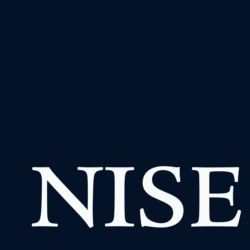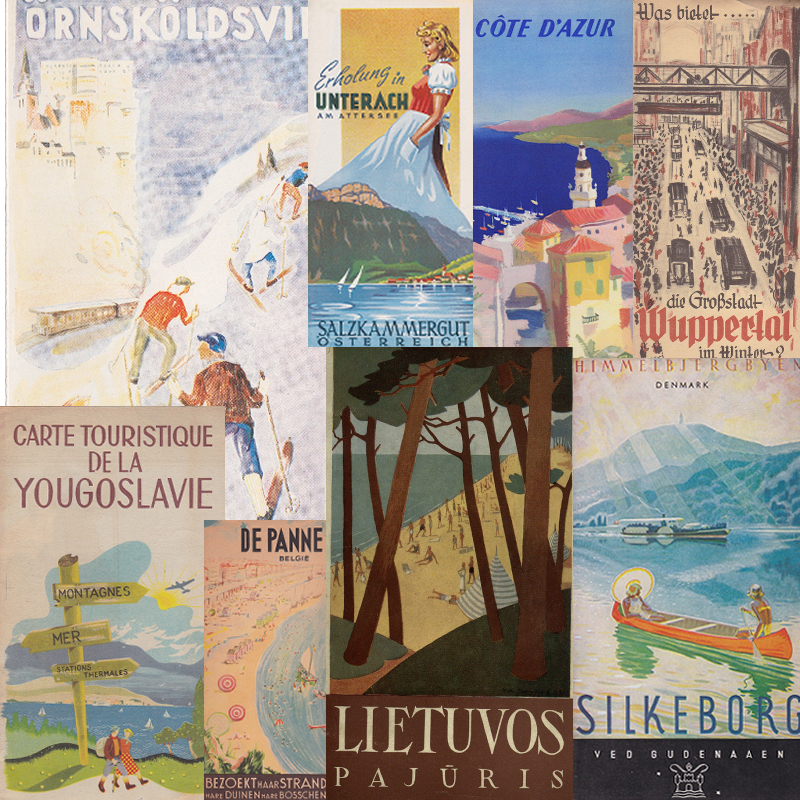Conference 2024: Nationalism and Tourism
Tourism as a social and cultural phenomenon since the nineteenth century has not only been a recreational practice or the opportunity to see unseen places, but also a tool for the realization of political interests. The 2024 conference, held on 15-16 May in Vilnius at the premises of the Martynas Mažvydas National Library of Lithuania, will further explore the intricate relationship between tourism, leisure and nationalism.
Conference presentation
Tourism as a social and cultural phenomenon since the nineteenth century has not only been a recreational practice or the opportunity to see unseen places, but also a tool for the realization of political interests.
Due to industrialization and the development of railroad networks in Europe in the nineteenth century, travel became faster and more frequent. Travel became cheaper and more comfortable and allowed a much larger segment of the population to participate in leisure activities.
Between the nineteenth and twenty-first centuries, European tourism grew into a key component of private leisure, without which many people could not imagine their daily lives. Tourism allowed people to enjoy their free time whilst simultaneously improving their acquaintance with their hometown, their surrounding country, their homeland, and places they only knew about from stories and books. Travel became an activity that encouraged further education and recreation. Moreover, getting to know the unknown made it possible to appreciate everyday details better and the value of each day. Spending the “right” amount of time on a short or long trip gave a possibility to better appreciate everyday rituals and could inspire visits to exotic lands. The “foreign gaze” made local populations experience their homeland as it must look to visiting tourists.
In addition, tourism in the last two centuries made it necessary to find the best way to create self-representations for countries, which could show their national exclusivity and importance; and it nationalized rusticity and local colour. Tourism stimulated national self-positioning both externally and domestically, encouraging and constantly offering to get to know one’s own country first and to spend holidays in it.
After the First World War, a new branch of tourism began to flourish: in countries which had lost their territories after the war, tours to lost places and borderlands became a special form of “heritage tourism”. The development of mass tourism since the mid-20th century (following the expansion of automobile and air travel) shows suggestive similarities as well as differences between totalitarian and open societies. Beginning in the 1970s, several waves of domestic/local tourism occurred in Eastern Europe, with a peak after the 1990s. And more recently a growing resistance against burdensome “hypertourism” has gathered impetus in cities from Tallinn to Barcelona.
Tourism, therefore, remains a practice that can be used for the representation of a city, country, or a place from a desired political perspective.
The NISE Conference 2024 on ‘Nationalism and Tourism’ will offer food for thought on all these matters with the diverse presentations of 16 speakers and 2 Keynotes.
Keynote Speakers:
As Keynote speakers we count on two renown authorities in the field: Prof. Eric G. E. Zuelow (University of New England) and Prof. Mordechai (Motti) Zalkin (Ben Gurion University of the Negev).
They will honor us with their motivating and engaging presentations, challenging and inspiring the audience’s thinking and knowledge on the topic of ‘Nationalism and Tourism’.
Program and flyer
Download HERE the Conference program and here the flyer.
Costs: The organizers strive to cover the costs of the conference speakers.
Venue
The conference will be held in the premises of the Martynas Mažvydas National Library of Lithuania.
Address: Gedimino pr. 51, Vilnius, 01109 Vilniaus m. sav., Lithuania
Organization
The conference is organized by NISE, the German Historical Institute and the Lithuanian Institute of History, with the support of ADVN and the National Library of Lithuania.

with the support of:



